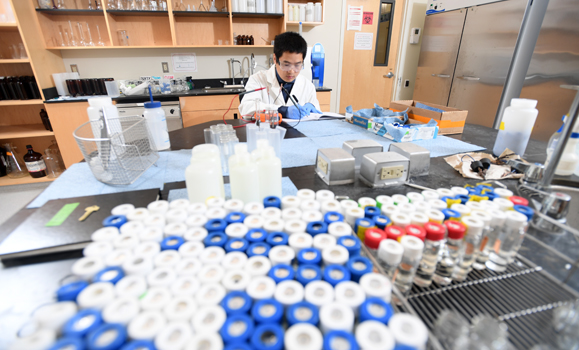This is one in a series of profiles featuring ±«Óătv graduate researchers receiving full scholarships from the Killam Trusts. ±«Óătv is one of just five post-secondary institutions in Canada endowed by the Trusts, which have supported nearly 1,800 ±«Óătv graduate researchers over the past half century. Learn more at the Dal Killam Laureates website.
Bofu Li is trying to assess just how much lead there may be in our drinking water.
“I’m working on drinking water treatment,” says Li, a Killam Scholar and PhD student in ±«Óătv’s . “Right now, my current research is on corrosion control and the impacts of corrosion inhibitors on lead concentrations in public drinking water supplies.”
In other words, Li spends his days, either in the lab or in the field, studying ways to lower the amount of lead in the water you drink.
A new world
Li completed his undergraduate degree at the Wuhan University of Technology in Wuhan, China, before deciding to come to ±«Óătv.
“Canada is a diverse country, and ±«Óătv is a famous Canadian university, so I decided to come here. It’s a very good place to continue my career.”

Li says that receiving the prestigious Killam award boosted his confidence and gave him a sense of belonging. Â
“As an international student, I’m studying in a strange country and in a different language. It’s a new world to me,” says Li. “The Killam scholarship has given me the motivation to keep going.”
A cooperative effort
Li is working with fellow researchers at ±«Óătv’s Centre for Water Resources Studies and Halifax Water to control lead concentrations in the city’s drinking water. Studies show that long-term exposure to lead is toxic for children, and can have a negative impact on their IQ and other cognitive functions. Studies also linked prolonged lead exposure to heart disease and other serious health problems.
“Lead contamination of drinking water is a global problem. There are a lot of old houses that still have lead pipes. But it would take years to replace all the pipes in every building, so we need to find alternative solutions, and we need to find them now.
“It’s not a new problem,” he adds, “but if we ignore it, it will become an emergency.”

